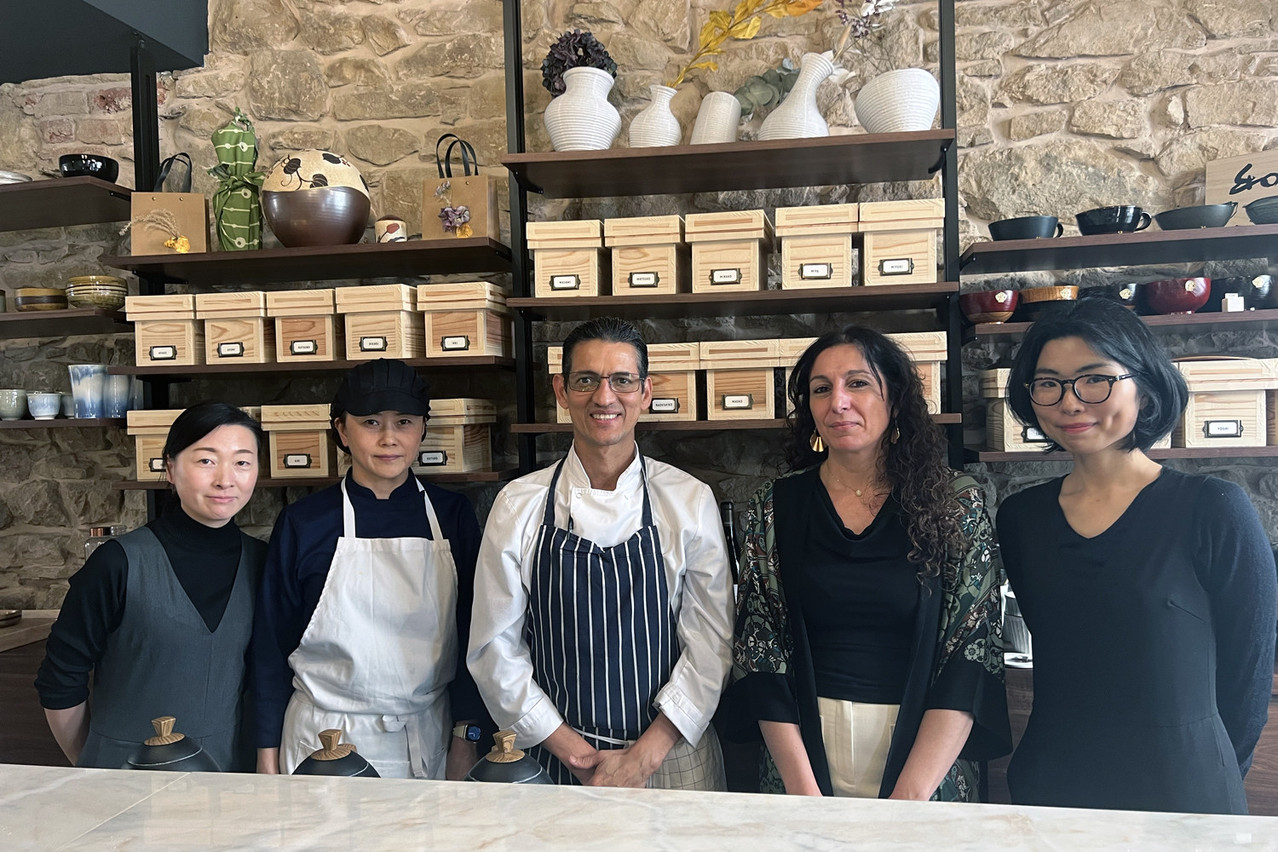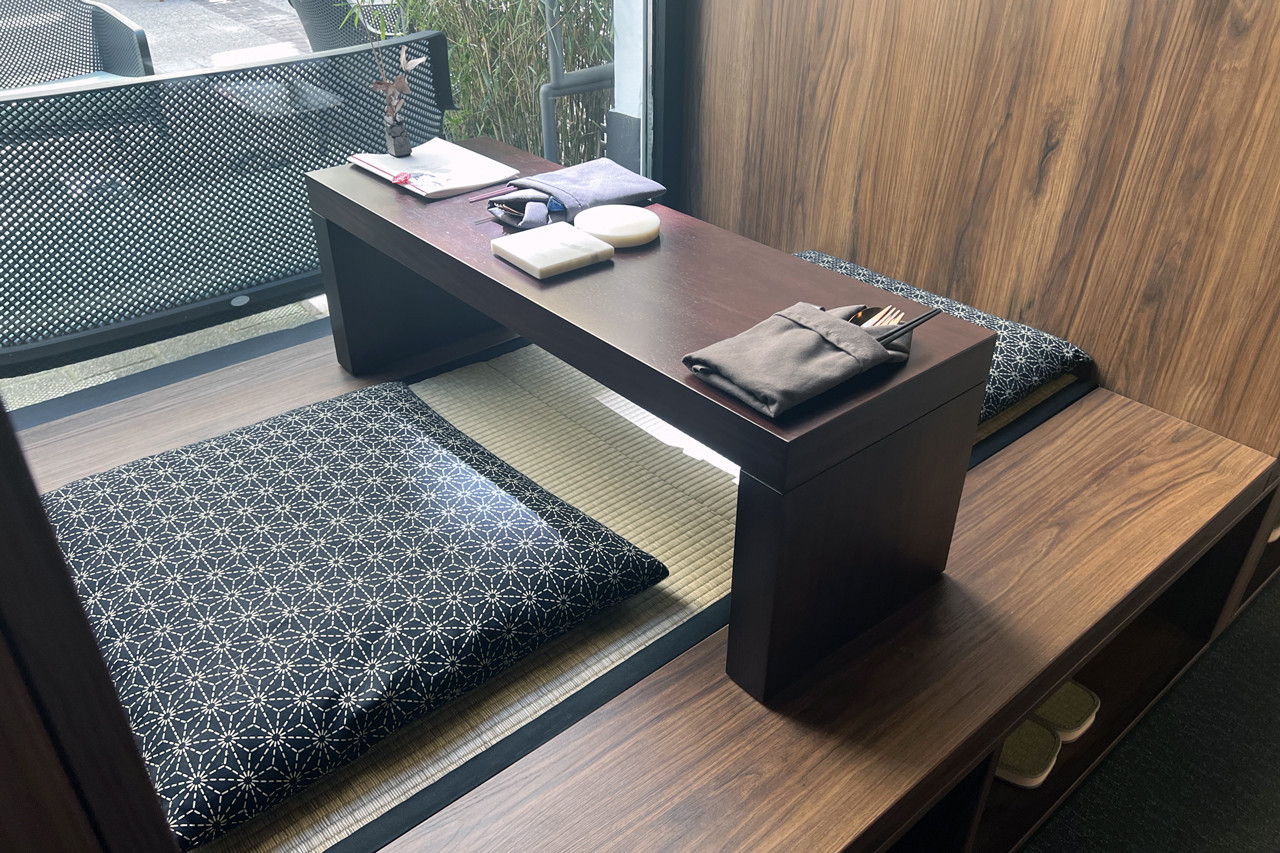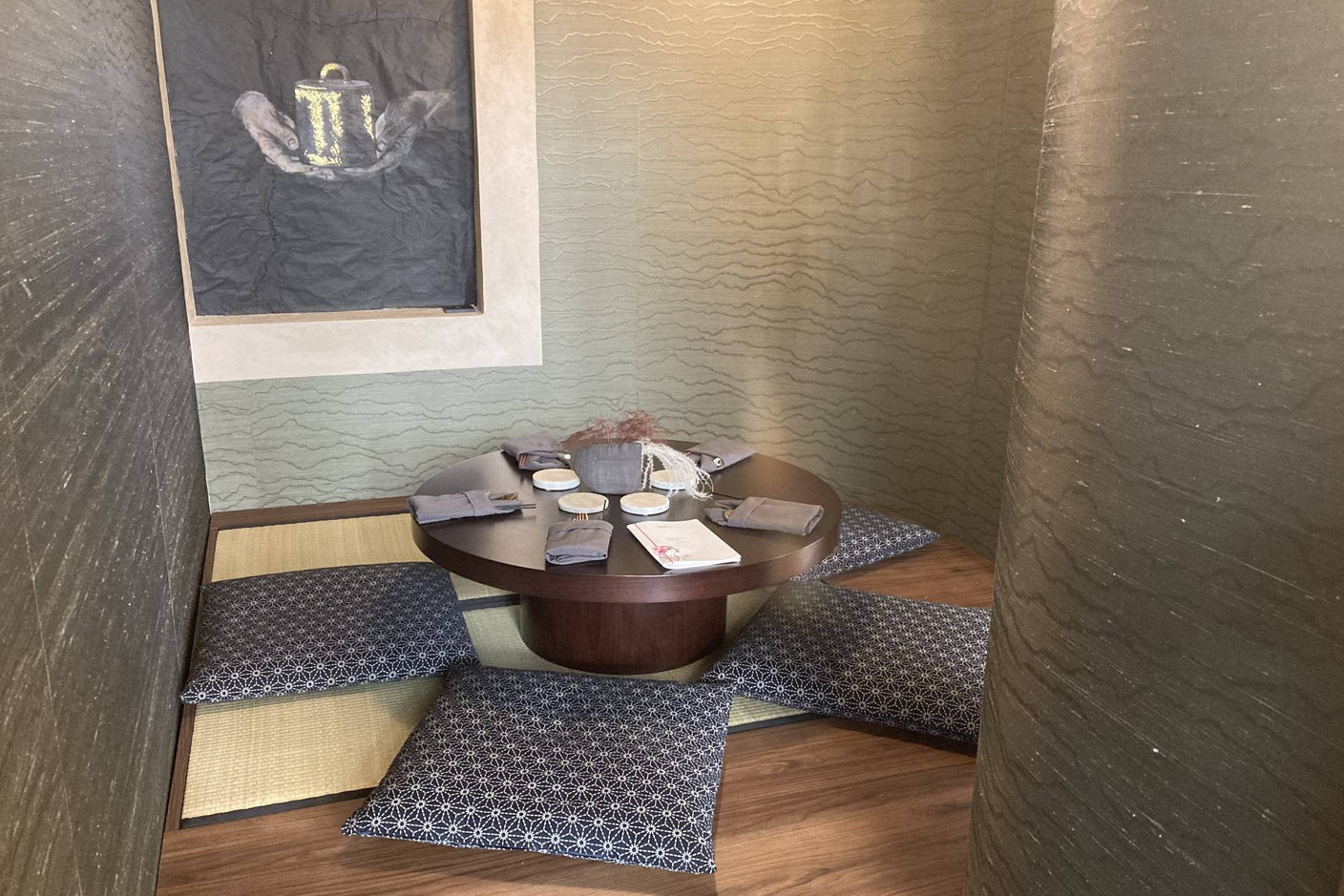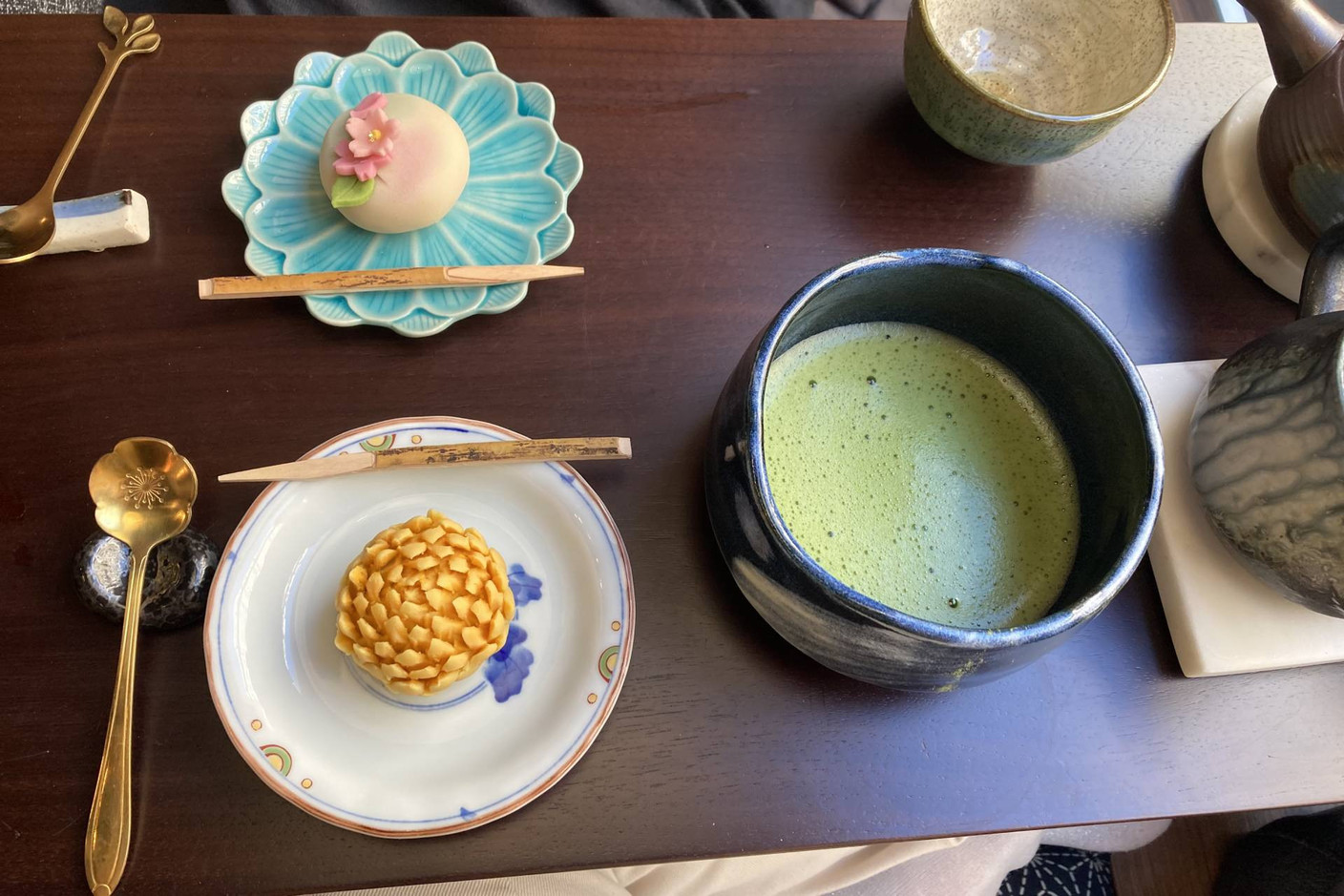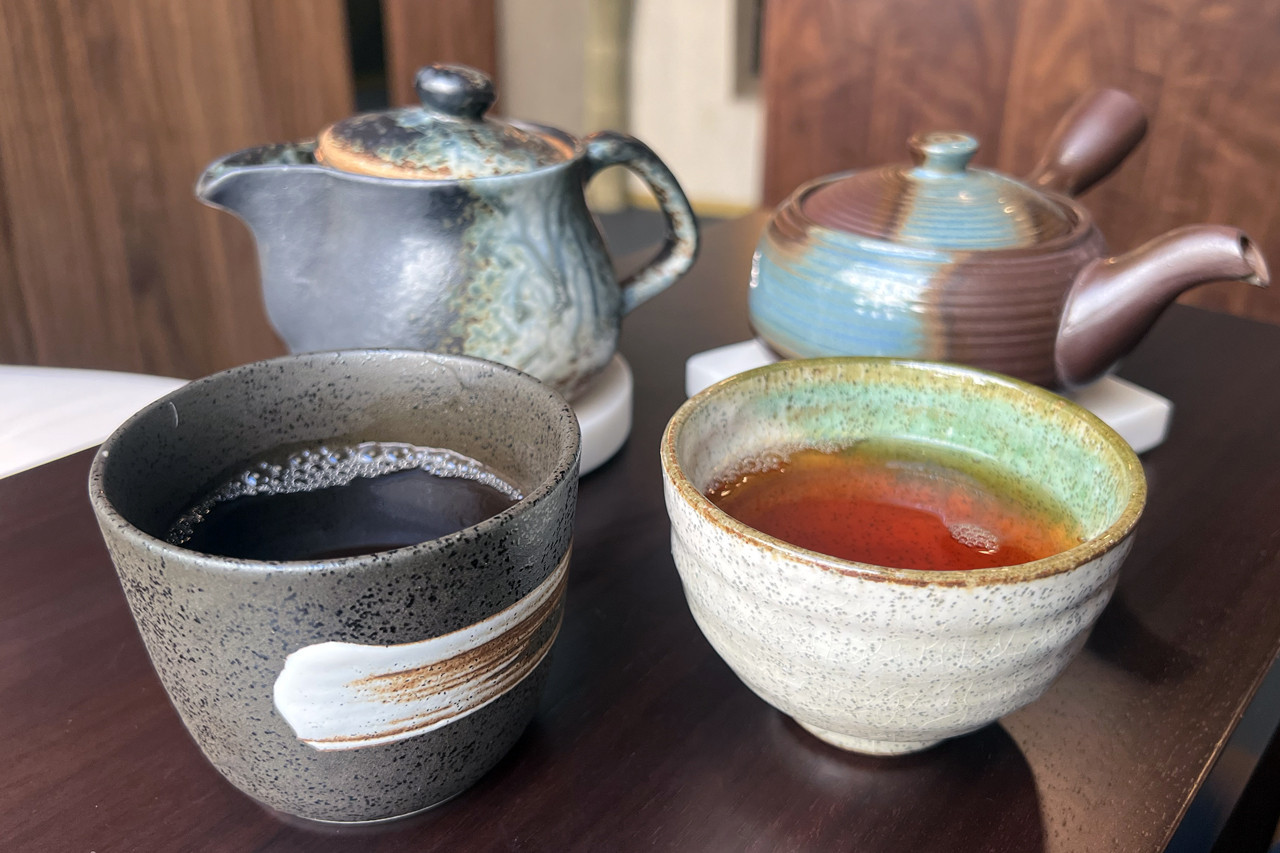Samira Maaoui opened Thé Râ Pie last October, leaving behind a career as a communications agency director. Her new challenge is to offer Luxembourg a unique spot that combines kaiseki cuisine--a succession of refined small dishes--and a tea room.
“I wanted to create an environment that was 100% Japanese,” explains Maaoui, who is passionate about Japanese culture. “Our cuisine is simple, using natural ingredients and inspired by Buddhist monks. More specifically, it’s shojin ryoriqui, a set of vegetarian dishes served in temples. This cuisine follows the rhythm of the seasons and is based on several principles of balance: colours (white, black, red, green, yellow), flavours (salty, sweet, sour, bitter, umami) and preparation methods (raw, boiled, fried, grilled, steamed). This approach makes it possible to compose meals that are balanced, visually harmonious and nutritionally complete.”
For our test lunch, we chose to sit at a traditional table with tatami seating. (For those with limited flexibility or back problems, “Western” seating is also available.)
The menu of the day (€25) consisted of carrot and courgette maki with a touch of umeboshi (Japanese apricot fruit), hijiki seaweed salad sautéed in sesame oil, potatoes simmered in a sweet and sour broth, steamed broccoli wrapped in vinegared shiso leaves, and a kombu-infused soup topped with spinach and enoki mushrooms.

The five dishes that make up the lunch menu. Photo: Céline Coubray
This meal was a real discovery, enhanced by the team’s many explanations. It deserves to be savoured slowly, in the manner of Buddhist monks, in a state of full awareness. This quest for balance is fully felt, and the experience deeply enriching, if you take your time with it.
This is a far cry from the usual European flavours: the cuisine is milder, sometimes perceived as bland, but it stands out for its finesse and sincerity. This form of frugality may come as a surprise, but it invites us to reflect on our eating habits and on the quantities we ingest, and to realise that the body often needs much less than we offer it in Europe.
It is also possible to order a wagashi--a traditional Japanese pastry--to complement the meal, and above all to accompany the tea, as these sweets are generally enjoyed with matcha or green tea. These refined little morsels are veritable miniature works of art. They are also available to take away.
In the evening, the lunch menu gives way to the shabu-shabu menu, a kind of Japanese fondue with three options: wagyu beef (€80 for 100g), sushi-grade fish (€63 for 200g) or vegetarian (€40).
A tea room with great vintages
In addition to its gastronomic offer, Thé Râ Pie is also a tea room where you can taste exceptional products.
“We offer around 30 varieties of tea produced by small craftsmen,” says Maaoui. “These are rare teas, from micro-productions, available in limited quantities.” The owner has enlisted the services of an agent in Japan to help with her sourcing.
The tea is prepared here according to the rules of the art, with water temperatures and infusion times adapted to each variety.

A boutique area offers Japanese handicrafts including crockery, candles and teas. Photo: Céline Coubray
The other pleasure of this address its décor and its crockery, which is produced artisanally in Japan. There is also a small shop where you can buy dishes, candles and incense.
Finally, your quest to improve your wellbeing can continue in the basement, where infrared therapy treatments are offered both the face and the whole body.
32, Rue du Curé in Luxembourg. Website: .
This article in French.
